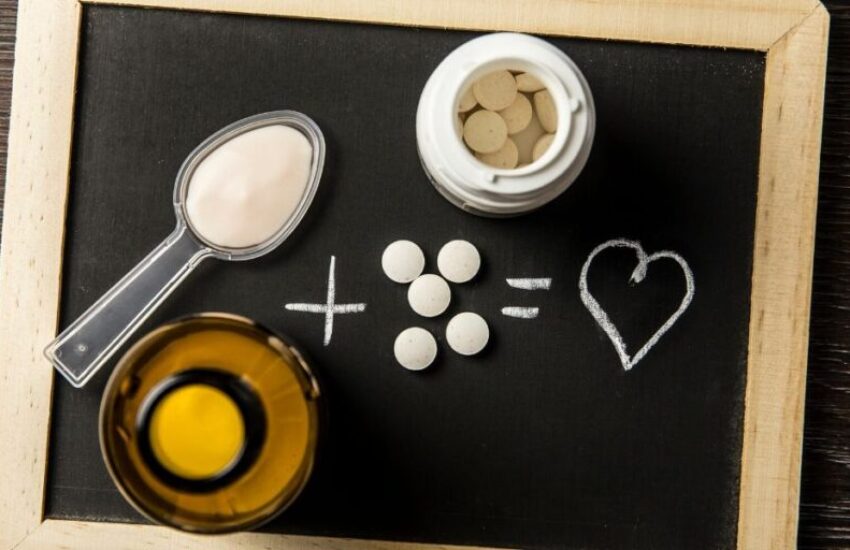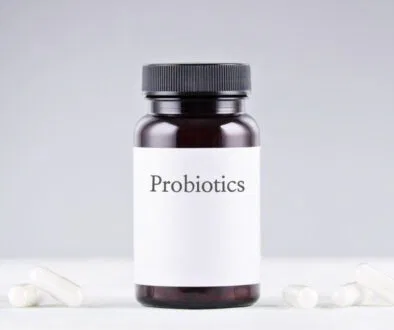Probiotics vs. Antibiotics; Which One Should You Take?

Published April 14th, 2021
Probiotics vs. antibiotics, this sounds awfully like some villain versus hero scenario. But that couldn’t be farther from the truth. Probiotics and antibiotics both have critical roles when it comes to our health.
You see, within our body resides tens of trillions of bacteria, both good and bad. Most of these microorganisms reside in our guts and make up what is called our body’s microbiome. According to an article from Harvard, the bacteria in our microbiome helps:
- stimulate the immune system
- break down potentially toxic food compounds
- synthesize certain vitamins and amino acids
If your microbiome is healthy, then you can easily fight off common diseases. And both antibiotics and probiotics can help keep your microbiome functioning as it should.
So which one should you take?
It’s not actually a question of choosing between probiotics and antibiotics. They benefit our bodies in different ways and most of the time, they complement each other.
So the more appropriate question would be when to take them. To answer that, you need to know how they work and how they differ from each other.
The Difference Between Probiotics and Antibiotics
Probiotics are live bacteria or yeast that are good for you. Though they have lots of health benefits, they are mainly used to aid digestion and promote overall gut health.
When you take probiotics, they repopulate the “good” bacteria found in your microbiome. This, in turn, helps keep the bad ones in check and prevents various kinds of illnesses.
Antibiotics, on the other hand, do the opposite. Taking antibiotics can kill the harmful bacteria in your body, which could otherwise cause infection. That’s why they’re often prescribed for illnesses caused by bacterial infection.
But the problem with antibiotics is they tend to wipe out all types of bacteria, including the good ones. This is why a course of antibiotics often leaves your microbiome in disarray.
When Do You Need Antibiotics?
You already know that there are many different types of bacteria living in our bodies. Most of them are harmless, but some of them can make you sick. The immune system can fight off most of the harmful bacteria. But it can get problematic when there are too many of them. This exact situation is when antibiotics come in handy.
Antibiotics, according to WebMD, “are medicines that help stop infections caused by bacteria”. They work by killing the bacteria and stifling their reproduction. Taking antibiotics helps prevent bacterial infection that causes diseases such as:
- ear and sinus infections
- skin infections
- gum infections
- strep throat
- bladder and kidney infections
In some countries, you can still buy antibiotics over the counter but it’s not recommended. According to the World Health Organization (WHO), antibiotic resistance is one of the biggest threats to global health today. This is largely due to the misuse of antibiotics in both humans and animals. So before taking antibiotics, make sure to consult your doctor first.

When Should You Take Probiotics?
Though antibiotics are undoubtedly beneficial, they can also cause several unwanted side effects. As mentioned, antibiotics not only get rid of the harmful bacteria but the good ones too. This throws off the balance in our microbiome resulting in:
- nausea
- vomiting
- antibiotic-associated diarrhea (AAD)
- bloating
- loss of appetite
- stomach pains
In some cases, a course of antibiotics can also cause people to develop fungal infections in the:
- mouth
- throat
- vagina
Because of this, many experts recommend taking probiotics after antibiotics. Remember that probiotics introduce good bacteria to our microbiome and promote their reproduction.
A dose of probiotics will help replenish the good bacteria lost during your antibiotic therapy. This, in turn, helps you avoid the nasty side effects of antibiotics.
You can buy over-the-counter probiotic supplements, but you can also find them in food. The most popular probiotic-rich foods are:
- sauerkraut
- yogurt
- kimchi
- kombucha
- tempeh
Can Probiotics Be Used to Fight Infection?
In a way, probiotics can help fight infection. But not in the same way as antibiotics.
While antibiotics kill off the bacteria that are causing the infection, probiotics equip your body to fight these harmful bacteria.
According to Harvard Health, probiotics have been shown to secrete protective substances. These substances help boost your immune system preventing pathogens from taking over and causing various diseases.
But as to whether you should take it to fight infection, the scientific evidence remains inconclusive.
One article from the journal Cell found that probiotics delay the microbiome’s return to normalcy.
In their study, they conducted tests on both humans and mice. Both groups took antibiotics at the start. One group was then given probiotic supplements while the other was given placebos. The group that took the placebos returned to normalcy after three weeks. The other group did show growth in helpful bacteria but returned to normalcy much later.
In contrast, an article from the JAMA network concluded that probiotics aided AAD. The researchers conducted a literature review of probiotics and their effects on AAD. Their study found a positive correlation between probiotics being able to aid AAD. They also found no significant difference in the impact between different age groups.
Can You Take Probiotics and Antibiotics at The Same Time?
Technically, you can. But you’ll just be wasting your probiotics. Remember that probiotics are a type of bacteria. And antibiotics tend to wipe off all bacteria, regardless if they’re harmful or beneficial.
So if you’ll take them at the same time, the antibiotics will most likely end up killing the probiotics.
Overall, probiotics and antibiotics can aid our bodies in their own ways. However, it would be best to consult a physician before taking any of them.
Benefit From The Latest Advancements In Probiotic Science With Bionaze
Bionaze is a proprietary blend of probiotics proven to promote ear, nose, and throat health, improve digestion, and support your immune system. The active ingredients BLIS K12, and BL-04 are considered among the best probiotics according to science.
Get 25% Off Your First Order when you use BIO25 at checkout!

This Content Has Been Reviewed For Factual Accuracy
This content has undergone thorough fact-checking by our team of internal experts. Learn more about the meticulous editorial standard for our website here.
ADVERTISEMENT

About The Author
Judy Ponio is a professional writer based in the Philippines. Her commitment to communicating factual content in when writing is unmatched. She works hard to cross check reputable sources to ensure her work uses accurate facts.




